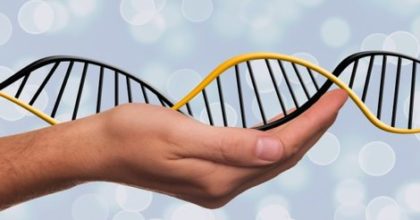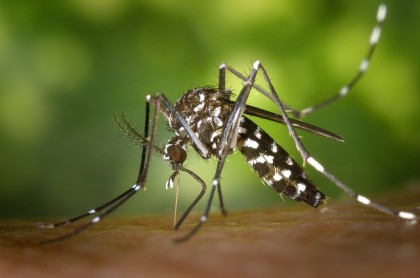Imagine if you will a holiday on which it is customary to bring flowers, chocolates, and the like to another person for whom one has romantic feelings. I know, I know, a preposterous proposition, but sometimes an outlandish thought experiment can be helpful. And so on this holiday, you bring a gift of flowers and observe how happy they make your crush. The next year, you are late to the florist and cannot get flowers so you bring chocolate instead and notice an equally happy reaction. The following year you are extra … [Read more...] about Science Corner: When the Bloom is off the Rose
genetics
Science Corner: A Flock of Sea Scrolls
Before they were one of the most famous archaeological discoveries (and narratives), the Dead Sea Scrolls were so many unsuspecting sheep, goats, and cows. Sure, there are some important steps in between, but for today's purposes, the animals are key. Since the parchments are made of animal hide, they have DNA. And DNA can survive for the ~2,000 years since the scrolls were written, allowing researchers to extract DNA from tiny samples or crumbs to learn about the animals who gave their hide for the parchment. You can … [Read more...] about Science Corner: A Flock of Sea Scrolls
Science Corner: The Skinny on Genes
Biology is not fully reducible to genetics, and behavior is not fully reducible to biology. I've found myself using that adage more often in conversation, so I thought perhaps it would be helpful to mention and unpack here. As far as I know, that particular phrasing is mine, but the sentiment I believe is fairly representative of what biologists think. While there may be a popular expectation finding genes for every personality trait, the reality is that genes can only have so much influence. That should be apparent … [Read more...] about Science Corner: The Skinny on Genes
Science Corner: I-9, Two Forms of Identification, and Your Genome
"Of course he became a supervillain; his name was Victor von Doom." Such sentiments are common about (and among) fictional characters; naturally Remus Lupin is the one who got bit by a werewolf, not James Potter, and of all people only Otto Octavius would wind up with four extra limbs. In real life, our future choices and the events that transpire around us aren't so easily foretold--but that doesn't always stop us from trying. We believe we could use our time and money so much more efficiently if we only knew from day … [Read more...] about Science Corner: I-9, Two Forms of Identification, and Your Genome
Science Corner: Designer Genes
It's been a busy week in the world of applied biology. Genetically modified mosquitoes were released in the Cayman Islands in an effort to disrupt Zika virus transmission; Florida is considering a similar intervention now that infections have occurred there. While the FDA approved the use of such mosquitoes, Congress has prevented it from even considering any procedures that intentionally modify human embryos in an inheritable way. Meanwhile, the NIH is preparing to fund research involving human-animal hybrids (think … [Read more...] about Science Corner: Designer Genes




